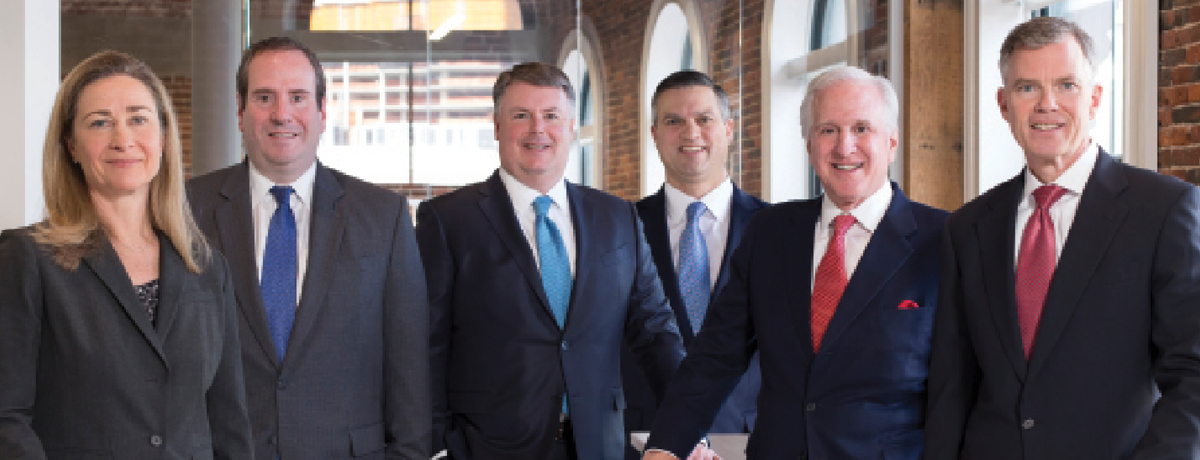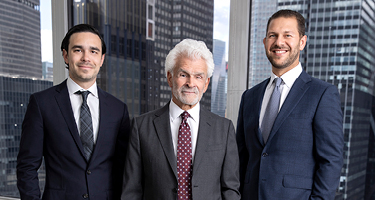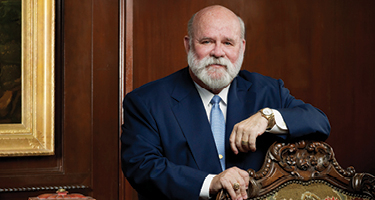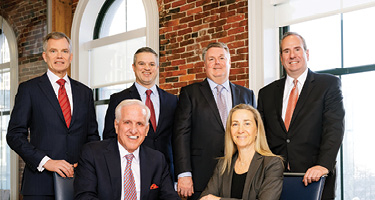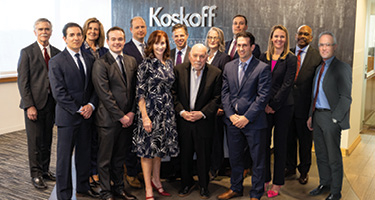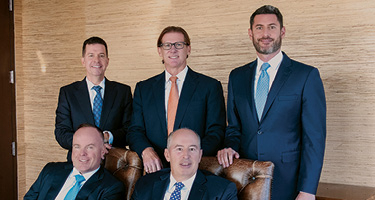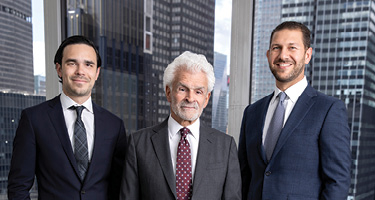For nearly 50 years, Andrew C. Meyer, Jr. and his law firm, Lubin & Meyer, have represented plaintiffs in New England who have suffered severe and life-altering injuries due to someone else’s negligence.
In recent years, Meyer and his partners have noticed an increase in the number of claims stemming from preventable medical errors.
“During the discovery phase of our cases, we repeatedly find that our clients’ conditions were either missed or worsened as a result of a breakdown in communication between patient and provider, or as result of the provider’s misdiagnosis of the patient’s symptoms,” says Meyer, who was recently featured in the Boston magazine exposé, “The Secret Truth About Boston’s Doctors.”
Lubin & Meyer is widely recognized as the most formidable medical malpractice and catastrophic personal injury firm in New England. In 2022, the firm demonstrated that reputation by securing 34 verdicts and settlements of $1,000,000.00+. It was the 15th consecutive year that the firm eclipsed the results of all other regional law firms.
“We field hundreds of calls a week from patients who have had a bad experience in their care,” says Meyer. While not all of these calls will result in a claim, many patients are often dissatisfied with their medical care and outcomes.
Medical Errors Are on the Rise According to New Study
In January 2023, the New England Journal of Medicine (NEJM) released the findings of a study assessing the frequency, preventability and severity of patient harm in a random sample of admissions to 11 Massachusetts hospitals. Alarmingly, these “adverse events” were identified in nearly one in four admissions, and approximately one-fourth of those were preventable.
“The NEJM study is just one of many that confirms what we have known and reported on for years,” says Meyer. “The lack of transparency in healthcare enables dangerous doctors to continue to practice, and providers are not always held accountable for preventable mistakes. When a patient suffers preventable harm due to a medical error caused by a health care provider, our firm is often that patient’s only recourse.”
We work to improve the practice of medicine through our advocacy—from the blood labs to the operating room. We are, in effect, a consumer watchdog on the healthcare system.”
One such scenario played out in 2022 when Lubin & Meyer represented a plaintiff whose cancer went undetected due to faulty bloodwork that should have been reported as “abnormal.” The plaintiff was not notified of the error, which went undiscovered for several years until the plaintiff was diagnosed with advanced, incurable cancer. Meyer and firm partners William J. Thompson and Maria L. Mazur uncovered this detail, securing $14 million for the client at mediation.
“Claims are becoming more complex,” Meyer notes. “We spend more time today than at any other period in our firm’s history investigating the claims because medical providers have become more sophisticated in how their work is documented, and as a result of the providers not wanting to acknowledge that an error was made in the care delivered.”
In fact, failures or delays in informing or diagnosing medical conditions were the root cause of action for the majority of Lubin & Meyer’s cases that were resolved in 2022. Sadly, Meyer notes that several of those errors led to preventable deaths.
“We work to improve the practice of medicine through our advocacy,” Meyer says, “from the blood labs to the operating room. We are, in effect, a consumer watchdog on the healthcare system.”
Lubin & Meyer’s lawsuits have exposed unsafe practices and system failures— including “double-booking” surgeries, “alarm fatigue” and computer system flaws leading to medication errors. Such lawsuits have led to improved systems, national awareness and new rules and procedures.
Holding Health Providers Accountable
Despite advances in science and technology, medical error has been one of the leading causes of preventable death in the U.S. for years. By exposing systemic failures in medical care, Meyer and his firm work to increase transparency in health care and educate medical consumers.
Meyer sees the need to increase awareness and build a “healthy skepticism” among patients seeking medical care.
“Historically, the assumption by many patients is that doctors are infallible. We have proven that to be faulty thinking,” Meyer says. “The rise in claims rooted in medical errors should help patients to recognize that doctors can and do indeed make mistakes.
“Furthermore, there are doctors with drug and alcohol dependencies who still treat patients, without the latter’s knowledge, which will only drive more negligence and malpractice claims.
“Our aim is not to discredit the medical profession or suggest widespread and intentional wrongdoing. As in any profession, there are doctors and medical professionals who provide substandard care, and the consequences can be costly–even catastrophic. It has been our longstanding mission to use the legal system to expose and correct dangerous medical practices in order to prevent further injuries.”
